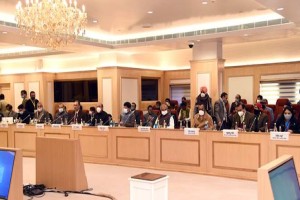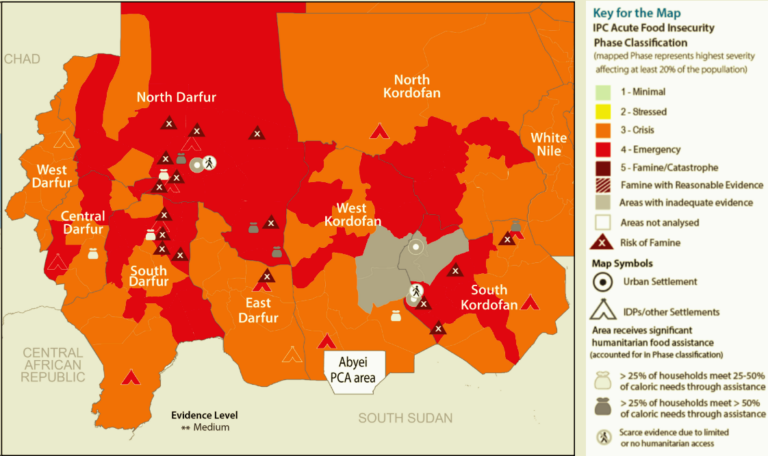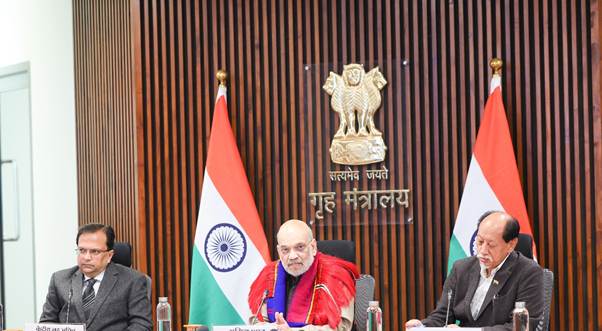
Both sides need to take steps forward to arrive at an amicable solution: Narendra Singh Tomar
New Delhi: The government today told the farmers that in principle it agreed to suggestions of the farmers’ unions regarding the Air Quality Management Ordinance and the Electricity Amendment Bill. It further said it could refer the farmers’ demand to repeal the three farm laws to a committee which will study the constitutional validity and propriety keeping in mind the welfare of farmers.
During the sixth round of meeting with the farmer leaders today, Union Minister for Agriculture Narendra Singh Tomar, in the presence of Union Minister for Railways, Commerce and Industry and Consumer Affairs, Food and Public Distribution Piyush Goyal and Union Minister of State for Commerce and Industry Som Prakash, assured the farmers that government was committed to solving farmers’ problems and both sides needed to take steps forward to arrive at an amicable solution.
Watch videos of informal discussions between farmer leaders and Union Ministers Narendra Singh Tomar and Piyush Patel during lunch break at today’s meeting between the two sides in New Delhi:
Tomar assured the Farmers’ Unions that MSP and the Mandi system will continue like before. The government further assured that the demand of the Farmers’ Unions for an MSP law and the difference between MSP and market rates for agricultural produce would be referred to a committee when it is constituted.
“The government has an open mind and is willing to resolve all issues with clear intentions,” Tomar said. He asked the farmer leaders to put forward their proposals which the government will study and discuss. He further complimented the farmers’ unions for keeping the agitation disciplined and peaceful.
The next round of talks will take place on January 4, 2021. Agriculture Minister appealed to Farmers’ Unions to end the agitation so that women, children and elders could return home.
In the meantime, Union Minister Hardeep S Puri stated that the Government had not only implemented the recommendations of the Swaminathan Committee to increase MSP to 1.5 times of the cost of production but it increased MSP in the range of 40-70% in case of all crops and expenditure of procurement at MSP increased by 85% in 2014-19 from 2009-14. He further pointed out that that the budget of the Department of Agriculture had gone up six times in as many years and informed that MSP was an administrative mechanism. He added that the laws “specifically provide layers of protection for our farmers, giving them legal safeguards to counter any unwarranted claims of corporates”. According to him the Government had “clearly stated in the laws” that such acquisition or leasing of land of our farmers will not be allowed in any case. “Our farmers are the stewards of land, soil and forests and land is truly like their mother. They have dedicated their lives, blood and sweat to its care. The Government would not allow anyone to come and take their land from them,” he asserted.
Puri cited the example of the successful Amul co-operative which, he said, had shown that despite the fragmented small scale producer system that might be present in a sector, people can come together to create a raging success story. He pointed out that today, Amul was not just producing milk, but much of its revenue came from processed foods exported worldwide. “This is the kind of success story we want for our farmers through these reforms,” he said, adding that the government had created 10,000 Farmer Producer Organizations which bring small and marginal farmers together and give them access to social capital, information and negotiating power.
Puri also referred to the recent launch of the 100th Kisan Rail from Maharashtra to Bengal where farmers can send their 50-100 kgs produce in cold chain coaches. He also referred to the creation of Rs 1 lakh crore Agri- Infrastructure Fund so that there was access to capital to build essential infrastructure space like warehouses, cold stores, sorting, grading and packaging units, rural marketing platforms, e-marketing units. Besides, he said, the Kisan Samman Nidhi (Rs 1,10,000 crore have already been paid under this) supported the farmers and alleviated subsistence issues while protecting their dignity, “which used to cause severe distress to our small and marginal farmers”. He also mentioned about the crop insurance mechanism- the Pradhan Mantri Kisan Fasal Bima Yojana – that he said had paid Rs. 87,000 crores as insurance to farmers against a premium of Rs 17,450 crores.
It may be mentioned that Punjab and Haryana account for around 30% of the national food production and around 70% of MSP procurement happens from these states. Puri said a 2018 study by the National Bank for Agriculture and Rural Development showed that 52.5 per cent of all agricultural households were indebted, with an average debt of $1,470. He added that 30% of the crops produced continued to get wasted due to a lack of proper cold chain infrastructure required to safeguard the perishable produce.
Additionally, the agriculture sector remains immensely fragmented due to many intermediaries, who often have huge margins. “Our hard-working farmers can turn our agriculture intensive states into the granaries of the world,” he said while reiterating that the agricultural reform laws intended to create “the right ecosystem to support them, guide them and make them Atmanirbhar“.
– global bihari bureau





